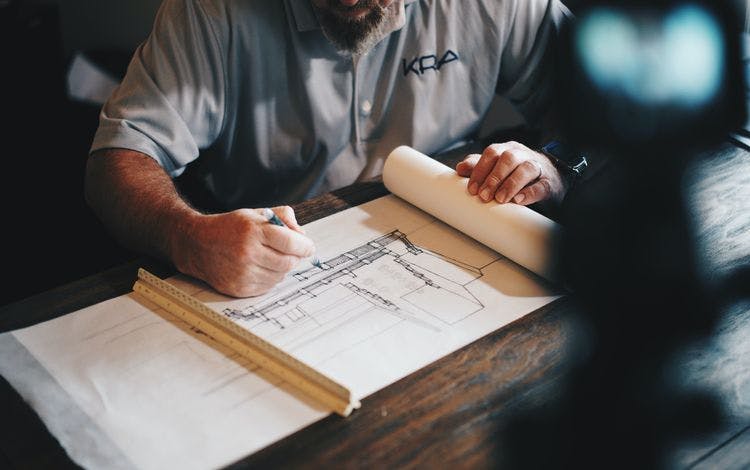The construction business can be volatile. Highs and lows are not uncommon as the industry is often directly impacted by the national economy. That said, for those who happen to own a small construction or contracting business gaining access to capital, particularly during the slower times, can be somewhat difficult. In this article, we take a look at what is involved with construction financing and what you might need to do to position yourself in the best light possible to get construction financing approval.
One of the primary challenges faced by construction company owners, depending of course on what area of the country they're located in, is the fact that for many, business is seasonal. Winter months prove difficult as far as beginning projects. Plus, with the number of new construction firms springing up yearly, competition can be fierce. There are inevitably going to be times when construction financing is needed to make it through and keep cash flow at positive levels.
Understanding construction loans
What exactly is construction financing and what might it look like for some companies? Construction financing is tied to a specific real estate project. That is to say, versus applying for a mortgage for a traditional property, with new construction projects you will have to go for a construction loan to fund the cost of the build.
If you are a small construction company, for example, you can apply for a construction loan to build a home for a client, build a house on spec or undertake some other form of real estate-related project. Most construction firm owners will usually own the land on which the structure is going to be built. This way too they can use the equity represented by the land as part of their down payment on the loan. Once the property is completed and a map is created showing the structure "as-built," you can then take this to the bank and have your construction financing turned into a traditional mortgage. Depending on how the construction loan was set up, it will either automatically convert to a mortgage, or in some cases, you may have to apply for a new loan for the as-built structure.
During the construction phase, many such loans are set up so that the borrower is only paying interest until the house or property is complete. Again, this will depend on the terms of the construction financing as established by the lender with whom you are working.
Construction financing process and protocol:
- Construction financing for new construction: For those business owners looking to build a property for a client or to sell, they can apply for a construction loan. Construction loans are often short-term after which, as mentioned, you will need to convert that loan into a traditional mortgage if applicable. Because they tend to involve a bit more risk than a traditional mortgage, the interest rates on a construction loan can be on the higher side, so keep this in mind.
- Down payments are usually higher: When it comes to construction financing, the amount you are required to put down on the loan is usually higher than you'd find with a real estate mortgage. Often, business owners and homeowners who do take out a construction loan could be looking at having to put down anywhere from twenty to thirty percent.
- More stringent application process: As with any type of loan, you will be asked to provide certain supporting documents for your application. Beyond your financials though, with construction financing, you also have to provide information on the property to be built, such instance, building plans and specs, land survey, property appraisal, building permits as well as anything else the lender might request.
Why you might need to get a construction loan
The money you receive from a construction loan as a company owner can be used for a variety of purposes associated with a construction project. In other words, you don't necessarily have to use it to buy building supplies for example. You can use the funds to purchase/rent equipment such as bulldozers or heavy machinery that are required for the project at hand. You might also use the money for hiring personnel to help with the construction of a home or other such property. Additionally, if you are a small business owner and need to build and/or expand your office, you could apply for construction financing for this type of project as well.
Applying for a construction loan
Because of the risk involved, getting a construction loan can be a bit more difficult than getting other kinds of loans. That said, there are steps you can take to help make your application more attractive to lenders.
- Have a sizable down payment: The more money you can put down on construction financing, the better off your chances of being approved. You want to go into the process with a minimum of twenty percent down; again, some lenders may require more depending on several factors. Owning the land on which the property is being built can help you qualify for the loan.
- Have a good personal credit score: The risk factor is seen as less so if the borrower's credit score and history are strong. If you have a track record of making all payments on time, this is to your benefit when applying for any type of loan.
- Prepare your financial documents: Along with specs on the property to be built, the lender is of course going to want to see all relevant financial documents from you and your company. Make sure you have these ready to go. They might include tax returns, company balance sheets, bank statements, among other pieces of information.
First Union Lending is here to help. We offer all types of business loans. If you need additional capital for any reason, we would love to consult with you. Call today!
